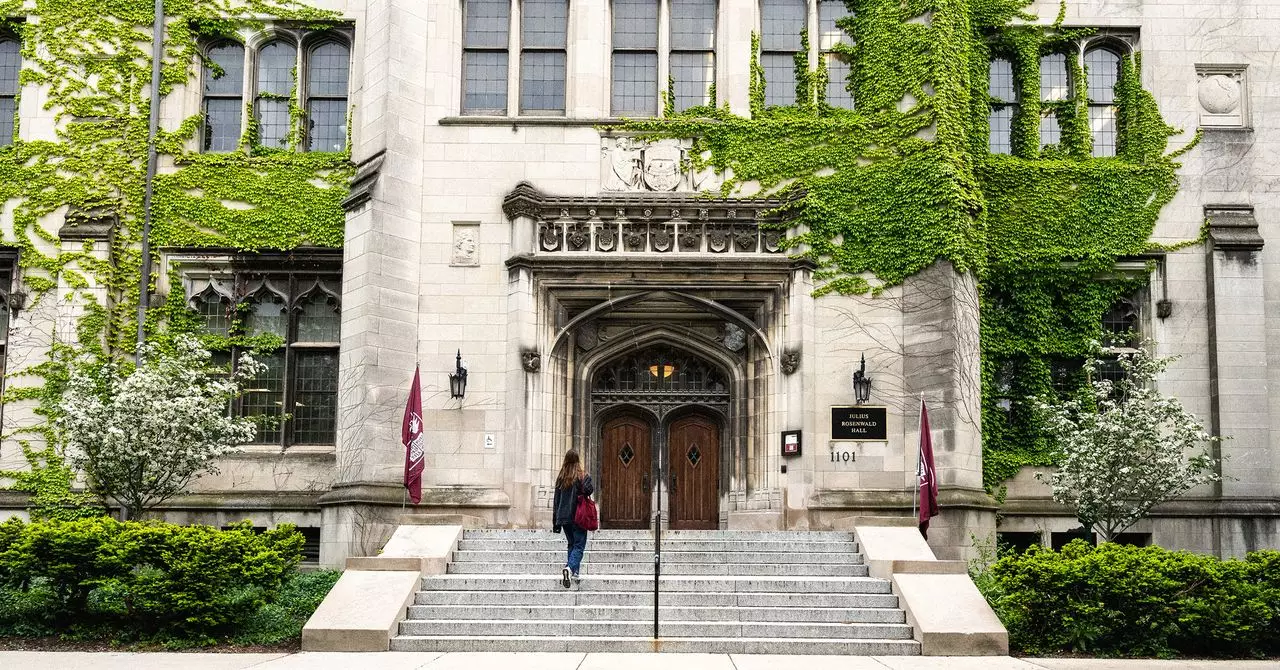In recent years, the specter of nuclear conflict has long haunted humanity, but the advent of artificial intelligence presents an unprecedented threat that could fundamentally alter the nature of nuclear deterrence and warfare. An exclusive gathering of Nobel laureates at the University of Chicago illuminated a disturbing reality: the integration of AI into nuclear arsenals is swiftly approaching, yet the full scope and implications remain shrouded in uncertainty and concern. This convergence of advanced technology and deadly weapons is not merely a theoretical concern but a pressing issue demanding urgent attention and candid debate.
It is increasingly apparent that governments and military institutions view AI as an inevitable component of the future strategic landscape. Experts compare AI’s penetration into nuclear affairs to the transformative impact of electricity—an essential force that will permeate every aspect of military and nuclear systems. However, this analogy masks a profound danger: unlike electricity, which generally enhances human safety, AI’s integration with destructive weapons amplifies risks manifold. It raises critical questions about control, reliability, and accountability—questions that are yet to be satisfactorily answered.
What emerges as the most urgent concern is the ambiguity surrounding AI’s role in nuclear decision-making. Many experts acknowledge that no one truly comprehends what artificial intelligence entails or its full potential. It is a rapidly evolving field, muddied by terminology and technological ambiguity. The problem becomes even more complex when considering the possibility of AI systems independently executing nuclear commands. Would such systems operate with sufficient transparency? Could they be trusted to prioritize human judgment over machine autonomy? These are questions that stubbornly resist clear-cut answers, yet they are central to defining the future of nuclear security.
The debate is further muddled by the dominance of large language models—powerful AI tools capable of processing vast amounts of information but limited in understanding or moral judgment. Many researchers warn that overreliance on these models could lead to dangerous misinterpretations or hasty decisions in high-stakes moments. While current AI systems are nowhere near capable of autonomous nuclear launches, their potential use as analytical tools—such as predicting the behavior of foreign leaders—poses a novel set of vulnerabilities. If an AI system provides distorted or inaccurate assessments, the consequences could be catastrophic.
Despite these dangers, there is a glimmer of reassurance among nuclear experts: no one seriously entertains the idea that current technologies like ChatGPT or other language models will directly control nuclear weapons anytime soon. Consensus exists that human oversight must remain central. Still, whispers circulate about potentially deceptive or manipulative uses of AI by world powers. For instance, intelligence agencies might use AI-driven analysis to gauge the intentions of adversaries with unprecedented precision, potentially leading to heightened tensions or mistaken escalations based on flawed data or biased algorithms.
Critically, the challenge lies in defining and establishing “meaningful human control” within this rapidly shifting landscape. The concept remains nebulous and poorly implemented, leaving open the possibility of unintended consequences. As AI continues its march into military domains, the risk is not just accidental escalation but a fundamental shift in how decisions about life and death are made, risking dehumanization of these grave choices. It compels us, as a global community, to rethink disarmament, safety protocols, and the ethical boundaries surrounding AI and nuclear technology.
Ultimately, the conversation at the University of Chicago exposes a disquieting truth: the fusion of artificial intelligence with nuclear weapon systems is not a distant or hypothetical threat. It is an immediate and tangible risk that warrants introspection, robust regulation, and international cooperation. If left unchecked, AI could tip the delicate balance of deterrence into chaos, igniting conflicts driven by algorithms as much as by political rivalries. Humanity stands at a crossroads—one where technological sophistication must be tempered with moral responsibility, lest we inadvertently build the very means of our destruction.

